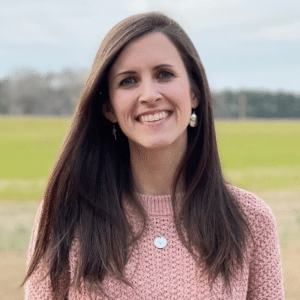On Friday, June 24 the Supreme Court released a decision to overturn Roe v. Wade. Our nation responded in an uproar, and dozens of theories and misconceptions immediately began to circulate on social media.
At The Pregnancy Network, it has always been our aim to provide women with the information they need to make fully-informed decisions about their pregnancies, and that remains true today. With countless voices and self-proclaimed experts adding their opinions to the fray, we believe it is important to address a few of the most common questions and concerns regarding this landmark decision.
3 Questions You May Have Since Roe was Overturned
1. How has this Supreme Court decision affected abortion access? Is it illegal now?
In 1973, Roe v. Wade established the universal, constitutional right to an abortion throughout all stages of a pregnancy. When Roe was overturned, the Supreme Court ruled that Roe was unconstitutional:
The Constitution does not confer a right to abortion; Roe and Casey are overruled; and the authority to regulate abortion is returned to the people and their elected representatives.
This means that abortion is no longer recognized as a universal, constitutional right. In other words, abortion regulation is now returned to the states. Each state may now regulate abortion restrictions individually.
The short answer: No, abortion is not illegal in the US. Rather, abortion restrictions are now determined by individual state law.
You can read the top quotes from the decision here, or click here for access to the full document.
2. Will women experiencing ectopic pregnancies or miscarriages be able to get the care they need?
Many are understandably concerned regarding these claims. This is because there is much confusion about the difference between medical language and legal language. For example, medical coding and billing label a miscarriage as a “spontaneous abortion.” Further, some medical procedures (such as a dilation and evacuation, also known as a D&E procedure) are used for a “failed miscarriage” (a deceased embryo that the body will not expel) and also for elective abortions. The concern is that physicians will be “confused” about what sort of care they can offer without risking legal repercussions.
However, state laws are explicit on this matter: every state with abortion restrictions includes exceptions for both ectopic pregnancies and miscarriages. (You can find a quick reference guide to each state’s laws with its specific language listed here, or you can go here to search for the laws of each state on your own. You can also read North Carolina’s laws here.)
Claims that “women will die” are unfounded; if women experiencing ectopic pregnancies or miscarriage are left untreated, it will be because of medical malpractice, and not because of legal restrictions.
Medical professionals are well aware of the differences between an elective abortion (the intentional termination of a pregnancy), a miscarriage (the natural death of a pregnancy), and an ectopic pregnancy (when an embryo has implanted within the fallopian tube resulting in the necessary removal of the fallopian tube in order to preserve the life of the mother).
The short answer: Women facing life-threatening situations (such as ectopic pregnancies or failed miscarriages) will still receive the care they need. Roe being overturned will not affect their treatment.
3. I’ve seen articles stating that pregnancy resource centers (PRCs) are fake medical clinics that manipulate women who are seeking or considering abortion. These articles say women should stay away from them. What’s the deal?
Claims that PRCs (such as The Pregnancy Network) are fake and manipulate women into decisions are false.
The Pregnancy Network remains committed to the highest standards of care. We offer medical services administered by licensed registered nurses. All medical services are overseen by a volunteer medical board consisting of local medical doctors who are board certified in Obstetrics and Gynecology.
We believe it is important to equip every woman with the information she needs to make a fully-informed decision. With any medical procedure, it is the medical professional’s responsibility to make sure a patient is aware of the process, implications, and potential side effects. If a woman comes to us and is considering her options (carrying-to-term and parenting; carrying-to-term and placing for adoption, or abortion), we spend time discussing each option and provide detailed information about each. Because we care about your health, we do not offer or refer for abortion.
In addition to these medical services, we also offer educational classes, material resources, and referrals to an extensive network of organizations across the Triad. We’re here to walk with you during and after your pregnancy, because we care about you.
The short answer: Claims that pregnancy centers are “fake” are false. TPN offers the highest standard of care; all medical services are overseen by local medical doctors who are board-certified in Obstetrics and Gynecology. All medical services are provided by registered nurses. Our team takes great care to protect your privacy.
In addition to medical services, we also offer educational classes, material resources, and community referrals. We care about you and will support you during and after your pregnancy.
We Are Here for You
If you are pregnant and considering abortion, you’re not alone. In light of recent news, you may feel pressure to make a decision about your pregnancy quickly. However, you owe it to yourself to become fully-informed about your options. We know your situation is anything but easy. Members of our staff and volunteer team have also walked through unplanned pregnancies, and some have also experienced abortions. We understand and are here to help you every step of the way.
Click here or call 336-274-4881 to schedule a free appointment for a pregnancy test and limited OB ultrasound. It would be our privilege to walk alongside you and support you during your decision-making process.

Mary Holloman
Mary is the Communications Coordinator at The Pregnancy Network.
